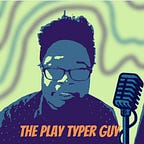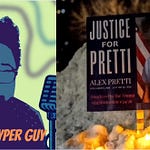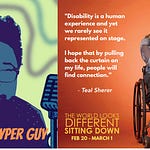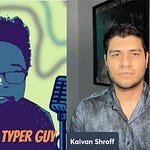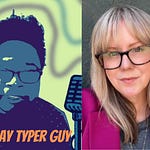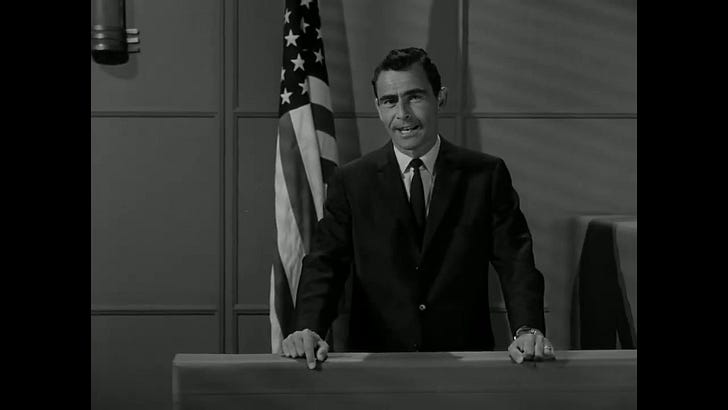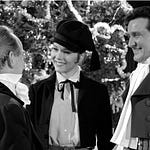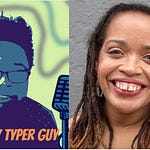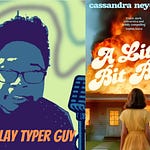I recently interviewed author Tim English about his book, The Kennedys' New York: American Royalty in the Greatest City in the World, which I recommend even if Robert F. Kennedy Jr. has permanently soured you on the Kennedy family or if you prefer New Orleans to New York.
You can download the podcast version above or watch the YouTube video below.
(This interview was conducted prior to Ethel Kennedy’s death on Thursday.)
Transcribed excerpts from our conversation:
SER: The Kennedys historically hailed from Massachusetts, but New York has sort of become their chosen home. What inspired you to do this deep dive?
TIM ENGLISH: I guess, like a lot of people, I've grown up just fascinated with the family. I've always followed them. There have been so many books written about all the different members of this family that it’s a challenge for an author to bring something new to the table. That’s what I tried to do with a lot of extensive research with an eye out for little details and stories that maybe people hadn't heard before, with the goal of showing how New York played such an essential role in the story of this family.
It goes back to 1927 and Joe Sr. moved the family to New York. He actually told a friend that Boston is no place to raise Irish Catholic children.
He thought that they were prejudiced against Irish Catholics, that it was the old sort of Brahmin old-school Protestants, and they were looked down on. They couldn’t get into some of the clubs and that sort of thing.
Joe preferred New York because he said Wall Street was very much a meritocracy, where it didn't matter so much who your parents were if you had your own smarts and wherewithal to get ahead. So that’s where he wanted to raise his children.
They moved to the Riverdale section of the Bronx in 1927. Two years later, they moved to the Bronxville section of Westchester County. JFK was, I guess, 10 when they moved, so really had his formative years growing up as a New Yorker. He was never far from New York, from Manhattan, for the rest of his life.
SER: There were a lot of people from my generation and older who really had their own sort of aspirations for [John F. Kennedy Jr.]., fair or not, of what his future would be.
[The book] follow all these spots where he was, both in his career when he was building up the magazine George, but also the restaurant on West 51st Street where he, literally ate his last meal.
You describe the situation of how he wound up piloting the aircraft [that crashed in the ocean near Martha’s Vineyard] and how it could have gone a different way.
TIM: Certainly with the tragedy with John and Carolyn [Bessette] and [her sister Lauren Bessette] in that plane crash, there were all these maybe 10 or 15 factors in it that if you take one out, it would not have happened.
You could start with the fact that [JFK Jr.] had his cast removed the day before at Lenox Hill Hospital. If that had happened the following week, he probably would have had an instructor with him.
There's also the fact that an instructor called him at George around noon that Friday and said, “Hey, you want me to go with you? And he said, no, I'm going to go it alone.”
That doesn’t happen. They probably are not in that crash. And on and on.
The traffic in New York, the fact that they both got delayed leaving the city that Friday afternoon. It was a Friday afternoon in the summer. Anybody who’s lived in New York or been around New York [would understand] there’s a very bad amount of traffic.
You have the weather as a factor, and just the fact that Lauren was there was probably down to the fact that [JFK Jr. and Carolyn] were fighting. There were some issues in the marriage. They had breakfast at the Stanhope where John had been living the last few days up on Fifth Avenue, not far from [Jackie Onassis’s] home at 1040 5th Ave.
Lauren was sort of playing peacemaker and said, “Come on, I'll go along.” John was going to his cousin Rory [Kennedy’s] wedding. Lauren was trying to talk Carolyn into going because it would have looked bad if Carolyn hadn’t gone. It would have publicized whatever problems they were having. So Lauren went as the peacemaker, but if she hadn’t gone, maybe Carolyn wouldn’t have gone.
But if it was just [JFK Jr. and Carolyn], they wouldn’t have made the detour out over the ocean to Martha's Vineyard because Lauren wanted to be dropped off there. That was the reason for that detour instead of hugging the coast and going right up to Cape Cod where the wedding was at Hyannis Port.
It’s just so many factors that contributed to this really awful thing. And as you said, Stephen, when he died, it was more than just the tragedy. He was sort of like a member of the family. The whole country actually knew him because his father was elected president just a few weeks before he was born.
A lot of people had hopes for him, which was probably a burden to carry, first having the name and then, the expectations that one day he’s going to run for president.
It was a complicated legacy. I had a account from the writer Jack Newfield who went to a place called the Judson Grill near George Magazine with John for lunch one day. He talked about how surreal or weird it was to be with him. Everybody is paying attention to him. All the women are looking at him, staring at him, smiling. All the waiters are nervous. Everybody at the restaurant is trying to listen in, trying to hear what he’s saying, so he couldn't really conduct any kind of real conversation because everybody was listening in, trying to hear, and he thought to himself, “How strange to live your life this way.”
Of course, John never knew a time when he wasn't famous … I had a quote from one of his friends. They said something like “It must be tough to be you,” and he said, “Actually, I highly recommend it.”
SER: I grew up in South Carolina. A lot of people in my family really connected with the Kennedys for their civil rights work, and it was a shock when [Robert Kennedy Jr. endorsed Donald Trump] given that history. Even beyond Camelot, the idea was this is a wealthy, privileged family but they used their powers for good. Perhaps that’s naive but was how a lot of people I grew up with viewed the Kennedys.
TIM: Well, one of the things I tried to show in the book is how after [JFK was assassinated], all the members of the family in some way or other carried on his work. Jackie, with the cultural side of it, which was a very important part of the Kennedy administration. Trying to uplift the cultural life of the nation was something Jackie carried on for the rest of her life.
[Robert F. Kennedy] obviously was trying to carry on his work politically … when Bobby was killed, [Ted Kennedy] later said, “I’m going to devote the rest of my life to carrying on what he was trying to do in the world. We see it also, obviously, with the with the Shriver family. [JFK’s sister Eunice Kennedy Shriver founded] the Special Olympics, which went worldwide and is a wonderful organization.
John Jr. was trying to [continue his father’s legacy] in his own way with George Magazine and getting regular people involved in politics. [JFK’s daughter] Caroline has been ambassador now to two of our closest allies in the 21st century, Japan and Australia.
[ …]
The amazing thing, you know, just how they live in different worlds. Within a week or two in February, Bobby Kennedy is at the premiere at the Plaza of the long-forgotten Richard Burton, Elizabeth Taylor movie, Doctor Faustus, and the same month, he’s down in Kentucky meeting with some of the poorest people in the country in the Appalachian towns down there and really speaking very empathetically with them.
The folk singer John Stewart from the Kingston Trio was on his campaign in 1968, and he said of Bobby, “He was a man who had everything, but he cared about people with nothing, and that's a pretty good description of what he was about.”


